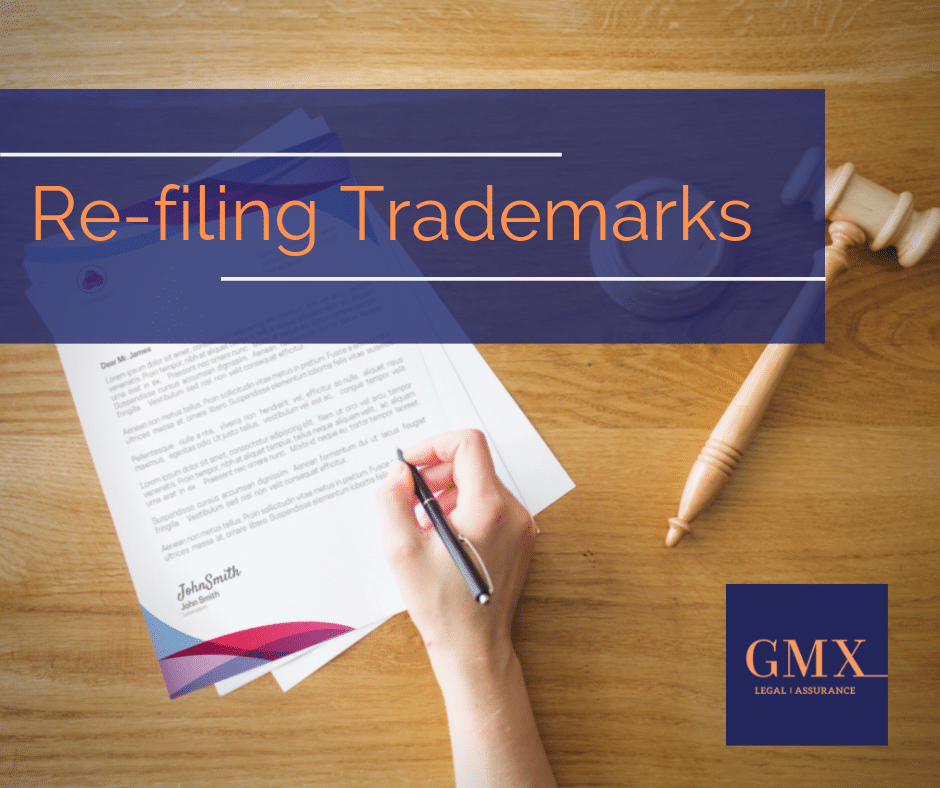Court Case: Virtu Holdings Limited
The Facts
On the 28 April 2017, the
Ministry for Transport and Infrastructure issued the “Request for proposals for a Public Services Concession Contract for the
provision of passenger and vehicle ferry services between Malta and Gozo”.
On 13 June 2017, Gozo Channel
(Operations) Limited issued the Preliminary Market Consultation inviting
economic operators to submit offers to the same Gozo Channel (Operations)
Limited. Virtu Holdings Limited
submitted its offer and the Evaluation Committee expressed its views that its offer
was the most advantageous offer and technically compliant.
Following the cancellation of the
call for offers of 28 April 2017, the Ministry for Transport and Infrastructure
issued another call for offers on 26 January 2018. This call consisted of
offers for transport services between Cirkewwa and l-Imgarr and between Belt
Valletta and l-Imgarr, as per the first offer, as well as for a fast ferry
service between other localities in Malta.
Thus, Gozo Channel (Operations) Limited re-issued the Preliminary Market
Consultation inviting economic operators to submit offers together with the
same Gozo Channel (Operations) Limited.
Virtu Holdings Limited and Islands
Ferry Network Limited subsequently submitted their offers.
By letter dated 13 April 2018, Gozo
Channel (Operations) Limited informed Virtu Holdings Limited that its offer had
not been accepted and that Islands Ferry Network Limited was the preferred
bidder. Subsequently, Gozo Channel (Operations) Limited and Islands Ferry
Network Limited signed a charterparty agreement whereby Islands Ferry Network Limited obliged
itself to lease with payment a fast ferry to Gozo Channel (Operations) Limited
in the eventuality that it is awarded the contract of the Ministry for
Transport and Infrastructure.
The Objection before the Public Contracts Review Board
By letter dated 20 April 2018 Virtu
Holdings Limited filed an objection to the PCRB requesting the cancellation of
the decision given that Gozo Channel (Operations) Limited did not have:
- The technical capabilities to meet the
requirements set (directly or indirectly) by Gozo Channel (Operations) Limited;
- The necessary experience to meet the requirements
set (directly or indirectly) by Gozo Channel (Operations) Limited;
- The necessary economic standing to meet the
requirements set (directly or indirectly) by
Gozo Channel (Operations) Limited
On 31 August 2018, the PCRB decided
that Gozo Channel (Operations) Limited’s Preliminary Market Consultations was
not an offer for a public contract that falls within the remit of the Public
Procurement Regulations and that therefore the PCRB did not have the
jurisdiction to decide on the objection. In fact,
the PCRB opined that “the invitation
issued by Gozo Channel (Operations) Limited should have been designated as a
“Call for Interest” to participate and not a “Preliminary Market Consultation”,
the latter of which caused a confusion of
interpretation of the action taken by the same in seeking a partner for the
fast ferry service. This Board would respectfully emphasize the fact that,
under normal circumstances, a “Preliminary Market Consultation” is issued by a
contracting authority and this Board has established that Gozo Channel
(Operations) Limited cannot be regarded as the contracting authority but rather
as a prospective bidder for the concession”. The PCRB decided:
- “does
not uphold Virtù Holdings Limited’s preliminary plea to suspend this board’s decision
to this appeal, pending the reply to the letter sent to the Director of
Contracts by the Appellants;
- upholds
Gozo Channel (Operations) Limited’s preliminary pleas, in that:
- Gozo
Channel (Operations) Limited is not the contracting authority in this appeal;
- the
“Preliminary Market Consultation” issued by Gozo Channel (Operations) Limited
to seek a partner does not constitute any form of public procurement;
- the Public
Procurement Regulations do not provide remedies to be heard by this board in
respect of “Preliminary Market Consultations”;
- concludes
that the sole objective for the issue of the “Preliminary Market Consultations”
by Gozo Channel (Operations) Limited does not constitute a direct objective to
represent a call for a tender or a call for concession”
The decision of the Court of Appeal
Virtu Holdings Limited appealed
the decision of the PCRB dated 31 August 2018.
(Virtu Holdings Limited (C30642) v
Gozo Channel (Operations) Limited (C76704) u Islands Ferry Network Limited
(C85742) ghal kull interess li jista’ jkollha Appell Numru 290/2018).
The Court of Appeal provided
guidelines to the PCRB which ultimately has jurisdiction to consider and decide
about it. The Court of Appeal noted that there were still open issues, namely Islands
Ferry Network Limited’s affirmation that
Virtu Holdings Limited had not proved that Islands Ferry Network Limited
did not satisfy the requisites requested
by Gozo Channel (Operations) Limited, and that on the contrary, all the
depositions of the Evaluation Committee confirmed that Islands Ferry Network
Limited satisfied all the points requested by Gozo Channel (Operations) Limited,
and that compared with Virtu Holdings Limited, Islands Ferry Network Limited
was the most attractive and advantageous offer.
Therefore, the Court of Appeal held that these issues do not constitute
the merits of the procedure before the Court of Appeal, but that these issues
have to be considered by the PCRB now that it had been established that the
PCRB has jurisdiction to hear the objection of Virtu Holdings Limited.
The Court of Appeal dismissed the
preliminary exceptions of Islands Ferry Network Limited, upheld the appeal of
Virtu Holdings Limited, revoked the decision of the PCRB and referred back the
acts of the case to the PCRB to consider and decide on the objection of Virtu’
Holdings Limited
The Outcome
Following the referral by the
Court of Appeal, the Public Contracts Review Board (PCRB) delivered its
decision on 30 August 2019. The PCRB
noted that following the Court of Appeal’s decision, the Preliminary Market
Consultation (PMC) published by Gozo Channel (Operations) Limited is to be
regarded as a tender document, whilst at the same instance Gozo Channel
(Operations) Limited is to be deemed as the Contracting Authority. The PCRB reiterated that the PMC issued by
Gozo Channel (Operations), specifically referred to the fact that, the
prospective partner must have the necessary experience, expertise and resources
to provide the services (Fast Ferry Services) as duly requested in the ‘Request
for Proposals’ (RFP) issued by the Ministry for Transport, Infrastructure and
Capital Projects.
The PCRB noted that the
processing of the offer of Islands Ferry Network Limited by Gozo Channel (Operations)
Limited consisted of two main deficiencies namely that:
- “Signing
of the contract prior to the decision of the Public Contracts Review Board in
respect of application filed by Virtu Ferries, in breach of regulation
277(3)(a), and
- The Authority
requested a partnership whilst the offer submitted by Islands Ferry constituted
a subcontracting arrangement.
Hence, a change of goal posts at the very start of the evaluation
process.”
The PCRB reached the following
conclusions:
i) That the contracting authority failed to abide by the
principle of self-limitation, by processing an offer which had to be an offer
for a partnership, whilst, in actual fact accepting an offer that was a
subcontracting arrangement;
ii) That the agreement signed between Gozo Channel
(Operations) Limited and Islands Ferry Network Limited breached the Public
Procurement Regulations and declared same to be ineffective;
iii) Gozo Channel (Operations) Limited established that during
the evaluation process, the Authority applied a weighting principle of 25% to
technical and 75% to financial aspect, stating that the weighting adopted by
the Authority was not sufficient and proportional enough to establish which
offer was fully compliant with the technical specifications and conditions as
duly requested in the RFP;
iv) The Evaluation Committee did not delve into a satisfactory
level of assessment with regard to the technical aspect of the offers.
v) The Evaluation Board did not attribute the expected
importance to the technical aspect and the relative consequences of failing to
abide by the maritime regulations, which are enforced to ensure proper
certification and safety, at sea.
vi) The technical specifications and conditions, as laid down
in the RFP should be technical specifications and conditions of this PMC which
the Bidder must satisfy, in all respects, to be eligible for the award of the
tender, without any compromises.
Following the abovementioned
conclusions, the PCRB did not uphold the Contracting Authority’s decision in the
award of the tender; directed the Authority to appoint a new Evaluation
Committee (with two members having a technical standing and well versed in
maritime activities and regulations); stated that the weighting of the
evaluation process should reflect more prominently the technical compliance
aspect; and that the new Evaluation Committee shall carry out an in-depth
assessment of the two shortlisted offers namely, those of Islands Ferry Network
Ltd and Virtu Holdings Limited to arrive at a fair and transparent conclusion
in their deliberation; and that now that both competing offers are public,
both offers are to be reassessed on their present merit.
The
GMX Commentary
The main issues of this case comprised
whether the Preliminary Market Consultations was an offer for a public contract
that would fall under the remit of the Public Procurements Regulations and
ergo’ whether the PCRB had the jurisdiction to hear the objection. In its first decision, the PCRB held that the
Public Procurement Regulations do not provide remedies with respect to Preliminary
Market Consultations. Furthermore, the
PCRB held that the Gozo Channel (Operations) Limited is not to be considered as
the contracting authority.
Interestingly, the Court of
Appeal did not enter into the merits of the PCRB’s decision, but rather decided
that the PCRB had the jurisdiction to hear the objection filed by Virtu Holdings
Limited, and to this effect referred back the acts to the PCRB.
Having established the vires of the PCRB by the Court of
Appeal, the PCRB decided that the Preliminary Market Consultations is to be
regarded as a tender document and that Gozo Channel (Operations) Limited is to
be deemed as the contracting authority.
The PRCB also established that the agreement signed between Gozo Channel
(Operations) Limited and Islands Ferry Network Limited was “ineffective” in
terms of the Public Procurement Regulations. The PRCB also commented on the
importance of technical specifications and the financials surrounding the
offers, and their importance for the evaluation process, namely to verify
whether a tender is compliant or not.



